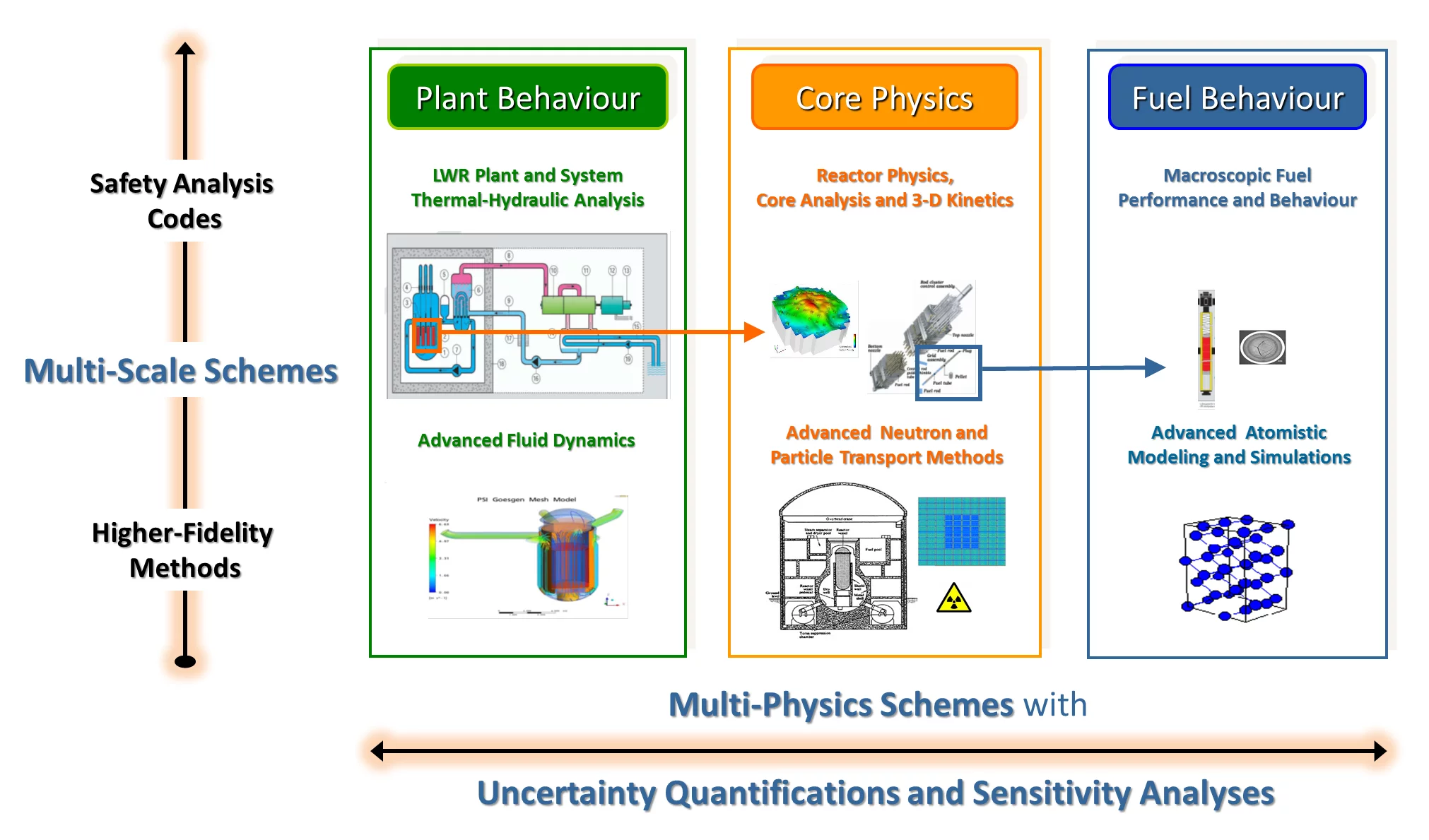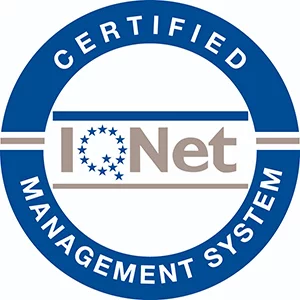From "Turbine to Pellet" and from "Finer to Coarser" Integral LWR Modelling and Simulations
The STARS "Research and Development" (RND) activities aim ultimately at enhancing knowledge on the complex phenomenology of nuclear reactor safety by establishing and qualifying increasingly more advanced and more reliable, physics-based simulation models and methods.
The RND activities constitute thus the central component of the STARS RND activities and are centered around the three main technical areas along which expertise has been consolidated over the years, namely:
- Plant system thermal-hydraulics and fluid dynamics;
- Core reactor physics, dynamics and neutron/particle transport;
- Fuel thermo-mechanics and material behaviour.
Within each of the technical areas, a first key activity is the verification and validation of adequate simulation codes along with the continuous development and maintenance of associated reference models for the Swiss reactors. The combination of {code, simulation model e.g. nodalization and the selected physical/numerical methods} is referred to as simulation methodologies and within each technical areas, research is focused on two categories of simulation methodologies:
- best-estimate safety analysis methodologies aimed at direct safety or operational related applications;
- higher-order higher fidelity methodologies representing the same physics but handling the relevant phenomena at finer resolved spatial/temporal scales and for this reason also relying often on tighter coupling approaches for the numerical algorithms. These higher-order methodologies can then be used either on stand-alone basis for specific applications or in a so-called “Multi-Scale” mode i.e. to provide numerical solutions to benchmark the safety analysis methods or to allow enhancing specific models of the latter which are uncertain or not well-known/understood.
Across the areas, a second key activity of STARS is to develop and validate so-called “Multi-Physics” methodologies. This refers to computational schemes where two or more of the codes employed in each separate area are via adequate numerical techniques coupled to codes from the other areas, the objective being to better integrate spatial and dynamical interactions between the various physics when conducting the safety analyses.
Finally, a third key activity is to develop in each of the areas, so-called "Uncertainty Quantification (UQ) and Sensitivity Analysis (SA)" methods in order to complement the simulation results with uncertainty as well as to identify the major contributors to these uncertainties.
Thereby, in-line with the strategic goals (see "Technical Objectives" section here), the long-term objective is then to apply these UQ/SA methods in order to achieve “integral multi-physics multi-scale LWR best-estimate safety analyses with uncertainty quantification”
Quality Management
NES Open positions
Current job openings in the PSI Center for Nuclear Engineering and Sciences




